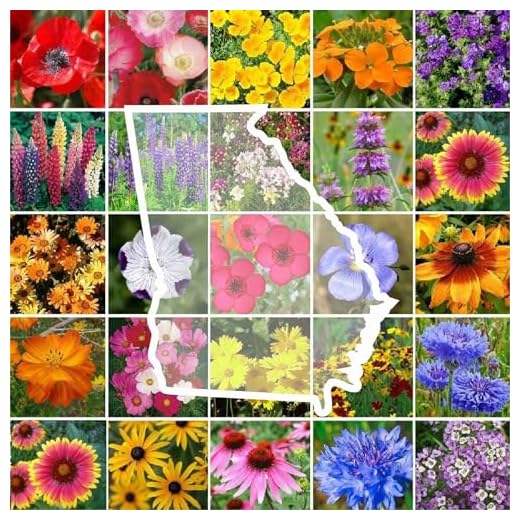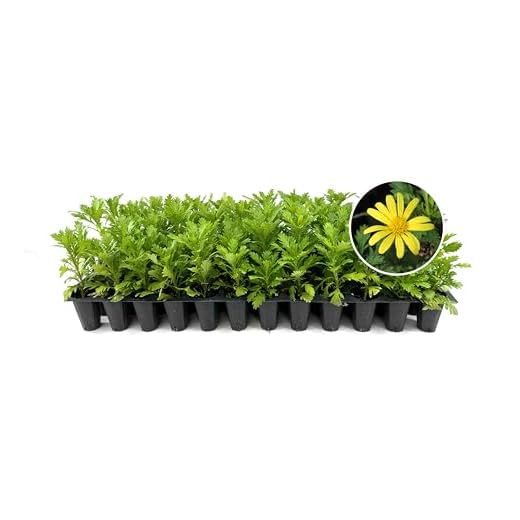



It’s simple: the specific blooms in question are not harmful to our furry companions. While many plants can cause issues for pets, these particular ones are considered safe. However, it’s always wise to monitor your pet’s interactions with any flora.
As an 8-year-old Scottish Fold, I’ve seen my fair share of plants in my humans’ home. While some can cause discomfort or health concerns, these flowers don’t pose a risk. If you notice any unusual behavior after your kitty has been around these blossoms, a quick trip to the vet is the best course of action.
In my experience, a curious feline may nibble on a petal or two. It’s part of our nature! Keeping an eye on your surroundings is crucial. If you’re unsure about other plants, a comprehensive list of safe and unsafe varieties is a great resource to have on hand.
Are African Daisies Safe for My Feline Friends?
Definitely safe! The plant in question isn’t harmful to my fellow furry companions. Unlike many other flora, these blooms don’t contain substances that would cause distress or illness in us cats.
- No gastrointestinal upset reported from ingestion.
- Allergic reactions are rare but can occur in some sensitive animals.
- Always observe your pet for any unusual behavior after they interact with new plants.
For those who enjoy a well-decorated home, these flowers can add a splash of color without worry. Just keep an eye on curious paws. I suggest ensuring that any plant remains out of reach to prevent any potential nibbling.
If your feline ever experiences any adverse effects, a quick visit to the vet will ensure peace of mind. Always better safe than sorry!
Identifying African Daisies and Their Common Varieties
For anyone looking to recognize these flowering plants, focus on the distinctive characteristics they present. Typically, they feature vibrant petals that can range from white to yellow, pink, and purple. The center of the flower is often dark, adding a striking contrast to the bright colors.
Common Varieties
Here are a few widely known types:
| Variety Name | Description |
|---|---|
| Osteospermum ecklonis | This type showcases daisy-like flowers with a range of colors, often with a unique blue hue around the center. |
| Osteospermum jucundum | Featuring large blossoms, this variety is known for its eye-catching shades and robust growth. |
| Osteospermum ‘Voltage’ | This hybrid offers vibrant and varied colors, perfect for brightening up any garden. |
When caring for these plants, ensure they are in well-draining soil and receive plenty of sunlight. This not only promotes healthy growth but also creates a visually appealing environment. If you’re a cat owner, maintaining a safe and hydrated space is crucial. Explore options for hydration for cats to keep your furry friend happy.
Lastly, if you’re curious about innovative cleaning solutions, consider what you read about whether we could make a radiation scrubber. These discussions can spark interesting ideas for home care!
Understanding Toxicity Levels of African Daisies
These blooms are generally considered safe for furry friends, but it’s wise to remain cautious. Some plants can cause mild discomfort, and reactions may vary among individual animals.
Here are key points to remember:
- Symptoms of mild ingestion may include stomach upset, vomiting, or diarrhea.
- Monitor your companion after they nibble on any plant material.
- If excessive drooling or lethargy occurs, consult a veterinarian immediately.
Most of my feline friends have had no issues, but I always advise a watchful eye. It’s best to encourage non-plant snacks to avoid any potential mishaps.
When introducing new greenery into the home, consider the following:
- Research the plant’s effects on pets before bringing it inside.
- Keep plants out of reach or in areas where curious paws can’t access them.
- Educate your humans about which plants are safe and which should be avoided.
Staying informed helps keep our lives free from unnecessary health scares. A little precaution goes a long way in ensuring our well-being!
Symptoms of African Daisy Poisoning in Cats
Ingesting these flowers can lead to several alarming signs. Watch for symptoms such as vomiting, diarrhea, and drooling. If I notice any of these issues, I can tell my human to act quickly.
Behavior changes are also a red flag. If I seem lethargic, lose my appetite, or appear unusually restless, it’s time to alert my caregiver. Shaking or twitching can indicate distress, so vigilance is key.
Gastrointestinal upset is common, so any signs of abdominal pain or discomfort should not be ignored. My human should keep a close eye on my overall demeanor and report any concerning changes to the vet.
In severe cases, difficulty breathing or swelling may occur. Immediate veterinary attention is crucial in such situations. Monitoring for these symptoms can ensure I stay safe and healthy.
Always remember to prevent access to these plants and consult a veterinarian if any of the symptoms arise. It’s better to be safe than sorry!
Immediate Actions to Take if Your Feline Friend Consumes These Flowers
If I munch on these blooms, the first step is to stay calm and assess the situation. Observe my behavior closely for any signs of distress or discomfort.
Contact a veterinarian or an animal poison control hotline right away. Provide details about my size, age, and the amount consumed to get tailored advice. It’s crucial to have the plant or a clear picture of it on hand for identification.
Monitor for any unusual symptoms such as vomiting, lethargy, or diarrhea. If I show any concerning signs, transport me to the vet immediately.
Home Remedies and First Aid
Do not induce vomiting without professional guidance, as it may cause more harm than good. If advised, I may need to drink water to dilute any potential toxins in my system.
Preventive Measures for the Future
Ensure that these flowers are out of reach in the home and garden. Consider replacing them with cat-safe plants to avoid any future mishaps.
Preventing Access to African Daisies in Your Home
To keep those colorful blooms out of my reach, ensure they are placed in elevated locations where I can’t jump or climb. Hanging planters work wonders, as they dangle above ground and look pretty.
Consider using decorative screens or barriers around flower beds if you have them in your garden. These can act as physical deterrents, keeping me from sneaking a taste.
Regularly check your living space for any fallen petals or leaves, as I might find those irresistible. A quick cleanup can go a long way in preventing any accidental snacks.
If you have visitors bringing plants, kindly remind them to avoid bringing these particular flowers into your home. It’s best to stick with pet-friendly options to ensure my safety.
Using natural repellents, like citrus peels or vinegar sprays, can help deter me from approaching areas where these plants are located. Cats usually dislike the scent, which can keep me at bay.
Lastly, providing plenty of engaging toys and activities can distract me from wanting to explore those tempting plants. A well-stimulated kitty is less likely to wander into restricted areas.
Alternatives for Cat-Friendly Gardens
If you’re looking for non-harmful plants to brighten up your space, consider these options:
Marigolds
These cheerful flowers not only add a splash of color but also deter pests. Safe for furry friends, marigolds thrive in sunny areas and come in various shades of orange and yellow.
Spider Plants
Green and easy to care for, spider plants are excellent indoor options. They’re not only safe for play but also improve air quality, making them a win-win for your home.
Another fantastic choice is catnip. It’s a favorite among us felines and can be grown both indoors and outdoors. Its aroma encourages playful behavior and keeps boredom at bay.
For a touch of greenery, consider incorporating herbs like basil or parsley. These herbs are safe for us while adding flavor to your meals. Plus, they can be grown in pots or directly in the garden.
Don’t forget about pansies! These lovely blooms are non-harmful and can bring vibrant colors to your outdoor area. They flourish in cooler temperatures and can brighten any spot.
By selecting these pet-friendly plants, you can create a beautiful and safe environment for your companions while enjoying nature’s beauty.







